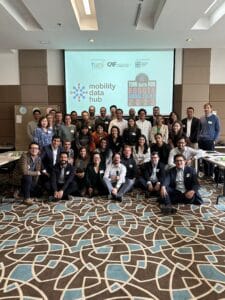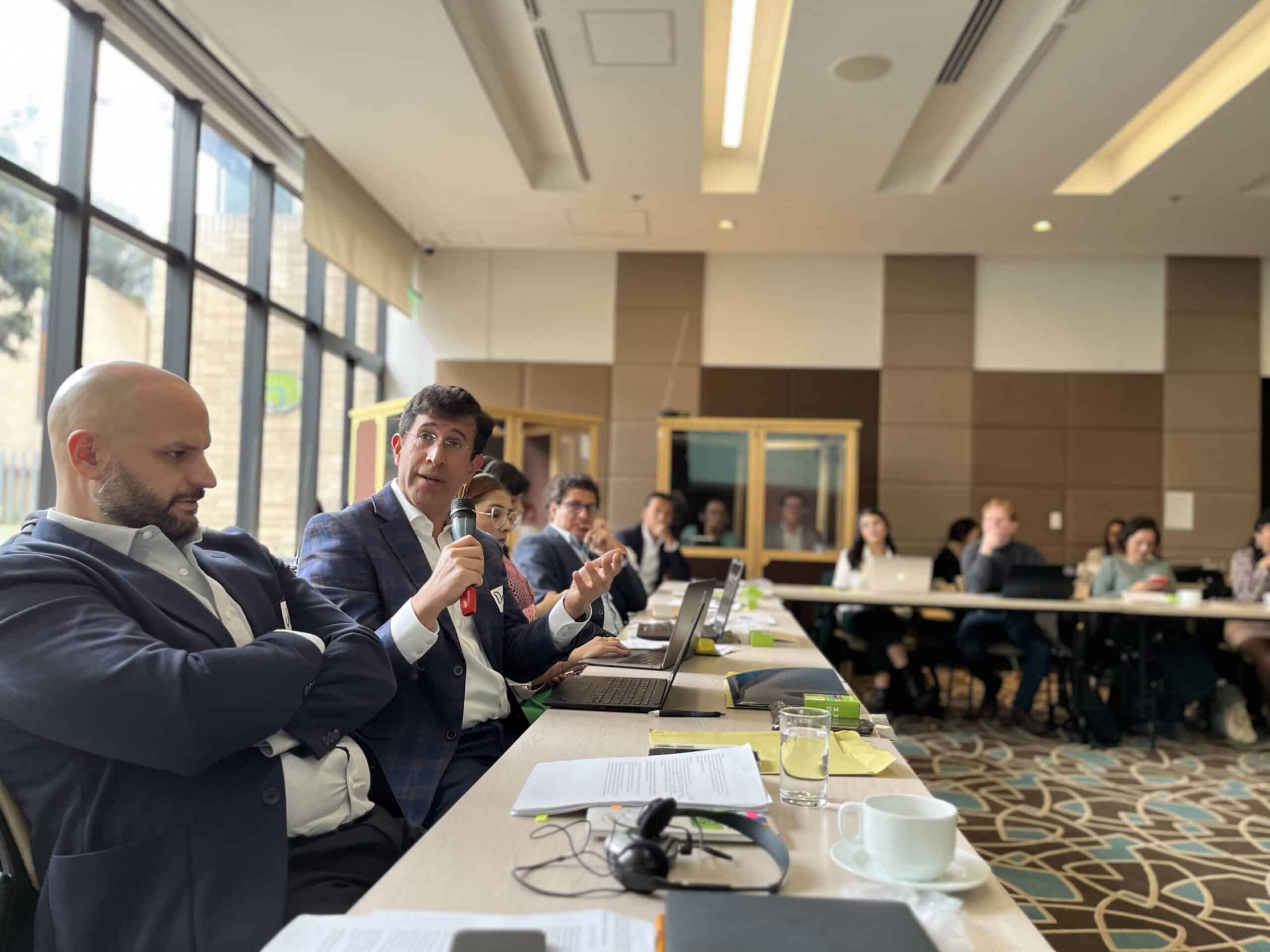We’re excited to announce that our project “TUMI Data – Datos para una movilidad sostenible,” in collaboration with our partner CAF – Development Bank of Latin America and supported by the New Urban Mobility Alliance (NUMO), has finally come to fruition. We held our launch event in Bogotá, Colombia on the 12th and 13th of April, which marked the culmination of our immensely rewarding and insightful journey!

During the two-day event, we launched the TUMI Mobility Data Hub, and delved into the importance of data and digitalization in mobility, showcasing results from case studies in cities across Colombia, Mexico, Ecuador, and Brazil. The event provided a platform for valuable insights on data-driven policy formulation and facilitated discussions on the challenges and opportunities within the mobility sector in Latin America. We were thrilled to offer the first-ever event solely focused on data and digitalization in mobility in the region, emphasizing the pivotal role that these factors play in shaping the sustainable future of the sector.
Furthermore, a dedicated session was conducted to deliberate on the subsequent actions to be undertaken based on the evidence and outcomes presented during the event. Lastly, a workshop was conducted on open data in mobility, wherein the gathering, organization, centralization, and purposeful utilization of information were explored for its potential in assisting public policy formulation.
Introduction to the project:
TUMI Data is implemented by GIZ and funded by the German Federal Ministry for Economic Cooperation and Development (BMZ). TUMI’s data-driven approach aims to support German development partners in making urban mobility more sustainable. The project – in cooperation with the Development Bank of Latin America (CAF) – is comprised of three main components: the establishment of a comprehensive Mobility Data Hub, the implementation of pilot projects to promote the collection, analysis, and use of mobility data, and academic research focused on innovative methodologies for data collection in mobility. The objective is to foster better decision-making by policy-makers through the use of detailed mobility data and digital applications.
You are currently viewing a placeholder content from Default. To access the actual content, click the button below. Please note that doing so will share data with third-party providers.
Component 1 – TUMI Mobility Data Hub
At the heart of TUMI Data lies the establishment of the TUMI Mobility Data Hub, serving as a centralized platform that grants access to reliable and relevant data sources. Complementing this hub, web applications have been developed to address critical challenges in urban mobility planning and implementation. These applications employ advanced analysis and visualization techniques to provide cities with actionable insights and a deeper understanding of their mobility landscape. The applications have been developed for four cities – Bogotá, Cuenca, Sao Paulo, and Mexico City – and can be scaled to other cities.
Web-app analyzing transport accessibility
In Bogotá and Cuenca, a transport accessibility analysis web application has been developed as an open-source tool to support mobility analysis. This web app plays a crucial role in visualizing accessibility and socio-economic indicators, aiming to enhance mobility and accessibility for residents of all backgrounds. By providing valuable insights into the transportation landscape, this application contributes to creating a more inclusive and connected urban environment, where everyone can enjoy improved mobility opportunities.
Web-app for citizen reporting of incidents
The citizen reporting web app provides a user-friendly platform for citizens to actively participate in enhancing mobility and safety within their communities. Through the tool, citizens can report incidents that impact mobility, share crucial information, and receive real-time status updates.
Web-app for public transport service quality management using operational data
In Mexico City, a web application is leveraging data to enhance the quality of public transport. By providing real-time mapping and visualizations of key indicators, the application aims to improve system performance and passenger experience. The app will enables users to visualize important performance indicators and generate reports related to the quality of the Metrobus system.
Development of manual bicycle counting
The São Paulo Municipality’s Climate Action Plan 2020-2050 sets an ambitious target of achieving a 4% mode share for bicycles by 2030, up from the current estimated figure of 0.8%. To track the effectiveness of cycling policies and monitor progress towards this goal, it is essential to develop a reliable and regular system for manual bicycle counting in the city.
To this end, the urban cyclists’ association Ciclocidade has proposed a comprehensive plan to improve the spatial distribution and characteristics of the count locations, taking into account the capacity of the traffic management agency, Companhia de Engenharia de Tráfego – CET. This plan involves counting at 218 representative points across the city to establish a historical series and improve the forecasting models already in use. The ultimate goal is to make annual or biannual bicycle counting an official indicator for monitoring cycling trends in São Paulo. This will allow the municipal authorities to track progress towards the 2030 target and adjust policies as needed to achieve it. By collecting reliable data and using sophisticated modeling techniques, São Paulo can continue to advance its cycling infrastructure and support a healthier, more sustainable city.
Component 2 – Pilot Cities
The effective utilization of available data plays a pivotal role in empowering local governments to develop urban and transport plans that are not only informed but also effective and sustainable. However, it is evident that many local governments have yet to tap into the full potential of data. To address this, Component 2 aims to implement innovative pilot projects in three Latin American cities: Bogotá, Cuenca, and Fortaleza.
- In Bogota, the focus is on enhancing shared mobility pilots by complementing and promoting integration between existing strategies, generating a higher impact through behavioral changes.
- Cuenca aims to improve its public bicycle system through data analysis and support. By analyzing usage patterns and identifying opportunities for improvement, the goal is to increase active users and trips, expand the system, and ensure long-term sustainability.
- Fortaleza is implementing a data-driven recycling strategy that integrates solid waste management and transport data to calculate a recycling index, contributing to the municipal urban mobility component (Proyecto Re-Ciclo)
Component 3 – Academic research: This component focuses on advancing the knowledge and understanding of mobility, transport, and urban planning through three research projects. These projects aim to develop new and innovative methodologies for data collection and analysis, which will be beneficial for governments in the region and around the world. This component is primarily oriented towards academia, while still keeping practical public policy needs in mind.
